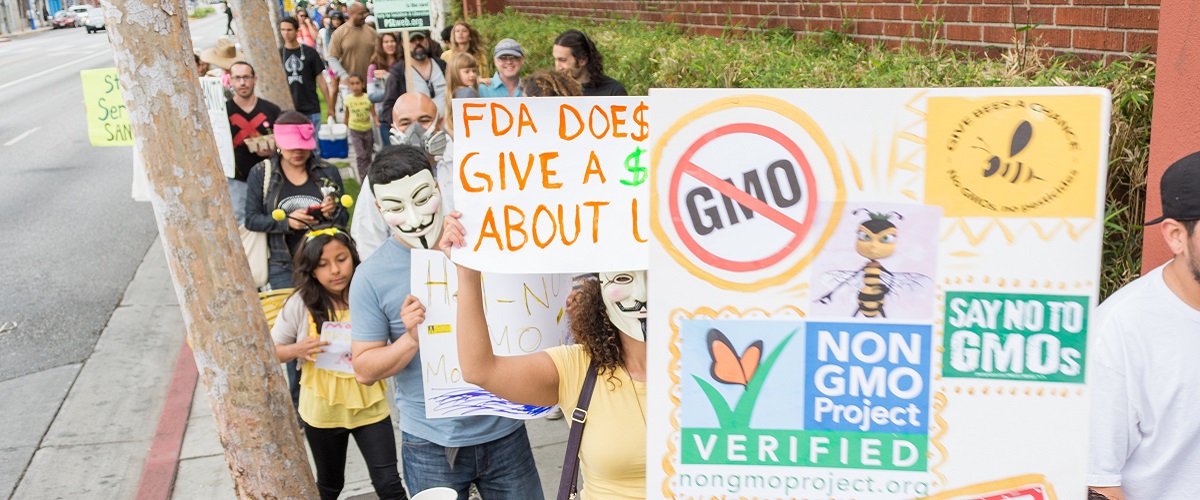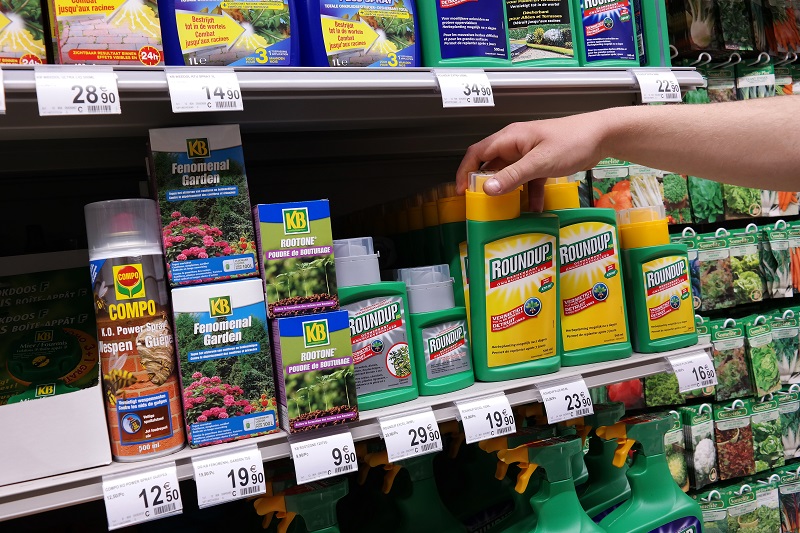The Monsanto Takeover

Monsanto, the world leader in GMO development, has begun buying heirloom seed companies and trademarks. These purchases began early in the 2000s and are recently coming to light as the list of heirloom companies under Monsanto’s control grows.
For those of us opposed to Monsanto and to GMOs, this means really doing our homework when purchasing seeds. When you buy from an heirloom company that is owned by Monsanto, you are inadvertently supporting Monsanto. Though the product itself is still non-GMO, your money unknowingly goes straight into Monsanto’s pocket.
Heirlooms are precious seeds chosen from genetically favorable, natural crop production. When a certain crop harvest contains a very healthy and productive yield, seeds from that yield are used for the next planting season. This lineage is handed down generation to generation, resulting in top of the line produce.
So who is Monsanto exactly? They are a large corporation that was founded in the US in 1901 as a chemical company. In its early stages, it produced artificial sweeteners and food additives like saccharin, aspartame, caffeine, and vanillin. As the company grew, so did its experiments in chemical production. Monsanto introduced DDT, PCBs, rBGH dairy cow hormones, and Agent Orange.
During their initial use, these products seemed to be beneficial to agriculture and human health, as the pesticides produced with their chemicals were extremely effective at ridding crops of insect nuisances, and were even used to kill vectors of human disease such as malaria and typhus. However, with time and further research, these products proved potentially carcinogenic along with numerous other health concerns, and were eventually banned.

Besides their production of dangerous chemicals, whose residual fingerprints still exist in our polluted environment, the company also had a hand in the production of the first nuclear weapons.
Driven by monetary gain and the realization that chemical production was a means to an end as more and more of their products resulted in lawsuits and major health concerns, Monsanto switched its focus to Biotechnology in 1997 after advanced scientific research and experiments led them to become the first company to ever genetically modify plant cells.
The production of Genetically Modified Organisms involves altering a certain plant seed’s DNA using artificial means. The idea is to give birth to a highly advanced “super seed” which produces plants that are resilient to poisons, pesticides, drought, and even extreme cold.
Monsanto supports its GMO production based on two ideals: sustainable agriculture and energy and water conservation. While these issues are prevalent concerns in environmental health today, Monsanto’s take on conservation efforts may not be so gallant. Here’s why:
As the GM revolution continued with Monsanto on the front lines, Round Up Ready seeds soon became available to go hand in hand with the Round Up herbicide product line. These seeds would be resilient to the chemicals in Round Up.
A two year study on rats fed only Round Up Ready Maize crops that had been treated with Round Up showed a high instance of kidney damage, liver necrosis, increased mortality rates, infertility, hormone imbalances, and cancerous tumor development. This was a follow up of a similar study conducted by Monsanto that lasted only 90 days. Data from other studies shows that the increase in certain diseases in humans beginning in the 1990s closely correlates with the introduction and increased use of Genetically Modified crops and glyphosate chemicals.
Based on these findings, one can conclude that Monsanto’s initial GMO trials are insufficient in reliable data concerning human health. In fact, Irina Ermakova, the Vice President of Russia’s National Association for Genetic Health, said in a recent statement: “It is necessary to ban GMOs to impose a moratorium on them for ten years. While GMOs will be banned, we can plan experiments, tests, or maybe even new methods of research could be developed.” Ermakova believes that GMOs have not been studied efficiently enough for them to be used widely on the market for human consumption. She concluded in her statement that “Methods of obtaining the GMO are not perfect, therefore, at this time, all GMOs are dangerous.”
Additionally, nineteen European countries have banned GMOs altogether within their territories. Numerous others have placed tighter restrictions on their use, seeking more time and further research before coming to a consensus.
Innumerable alarming facts and speculations surround the company, its products, and its motives. One disturbing fact is that GMOs are capable of self-propagation and cross breeding, meaning that the traces of these products in the gene pool of the world’s food supply can never be eliminated.
As Monsanto promotes its efforts for sustainable agriculture and energy conservation, malicious intents are evident within their actions. Genetically modified seeds produced by the company are under the protection of patents, which restrict their use. The legal rule of thumb has long restricted patents on living things, including plants. The US, however, came to the decision that the technology implemented to create genetically modified seeds was legal to patent. By the same token, the seeds themselves; and the product of those seeds, stand upon the shaky and controversial foundation of Monsanto’s patents.
As a result of these patents, the company can, and does, sue farmers whose fields are contaminated with GMOs under the protection of their ownership; though this contamination is almost always the result of natural pollination by insects and wind. To add to the chaos, the US Government backs Monsanto’s patents. Monsanto is rumored to have spent large sums in lobbying and campaign contributions, effectively bribing politicians and bringing them in tow with their motives. In fact, in 2010 President Obama named Monsanto’s former Vice President of Public Policy as the new Deputy Commissioner of Foods at the Food and Drug Administration. Many argue this point to Monsanto’s effort to control the world’s food supply.

The legal aspects involving Monsanto become more confusing and shrouded in doubt and controversy when one examines a dispute filed against the company in 2009. Monsanto came under investigation by the US Department of Justice after the department created a web page known as “Agriculture and Antitrust Enforcement Issues in Our 21st Century.” This page resulted in over 15,000 comments and complaints against Monsanto, launching a lengthy inquiry into the legal actions of the company by the Department of Justice. Late in 2012, Monsanto announced that the inquiry had resulted in no enforcement action. No details of the inquiry were ever released, raising speculation of monetary settlements behind closed doors.
As heirloom seed companies begin to feel the effects of Monsanto’s takeover, they have sold their rights and trademarks to the company in an effort to avoid financial collapse. GMOs continue to squeeze out the competition and Monsanto grows larger and wealthier. Those of us dedicated to preserving a natural, organic way of living must be aware and vigilant in order to fight this conglomerate.
Round Up products make up for 90%of Monsanto’s revenue, with heirloom seeds gradually adding to that number. It is prudent for consumers to avoid these brands, and to closely research the ever growing list of heirloom seed companies and trademarks now under the ownership of Monsanto. With rights to these trademarks, little stops the company from modifying these precious heirlooms, possibly wiping out their existence altogether.
Monsanto has teamed up with Seminis, who controls an estimated 20% of the world’s vegetable seed market. Brands including Celebrity, Early Girl, Better Boy, Cheddar, and Marketmore 76. Seminis is also beginning to introduce genetically modified brands into its product lineup.
Other major heirloom companies now owned by Monsanto include Big Beef, Royal Chantenay, Salad Bush, Golden Acre, Devotion, Ambassador, and Harvest Moon. These, and many other companies have submitted to Monsanto’s control, and the list continues to grow.
Fighting for the future of organic farmers, heirloom crops, and human health begins with us. We must be vigilant and we must watch closely to avoid this industrial magnate takeover.